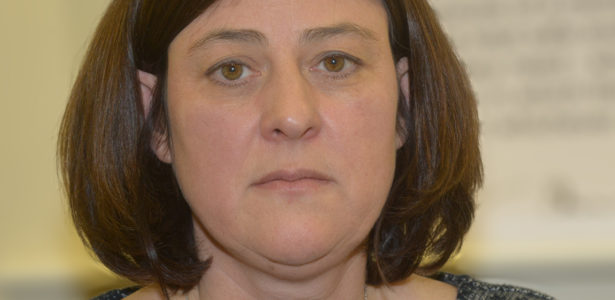Julia responds to the IPCC Police Complaints Statistics for 2016 17

Julia Mulligan, Police and Crime Commissioner for North Yorkshire said: “The police complaints system is largely broken, and frequently fails both members of the public and the police workforce. The Government has however brought forward new legislation which allows Commissioners to get more involved in the police complaints process, and I intend to do just that next year, instilling an important element of independence. My new team will make it quicker and simpler for both the public and officers, as well as focus on the thank you letters the police receive every day, of which we get more of those than complaints.
“The picture in North Yorkshire at the moment is mixed. Those working within complaints do a good job in a badly designed system. Complaints have risen recently, but we need to understand those fully and make sure it isn’t a sign of poor practice or bad service, or whether instead it signifies the public feel making a complaint is worthwhile.
“Either way, I intend to improve the system in the near future, putting customer service at the heart of what we do, and making sure policing learns the lessons from poor practice, but also celebrates the good.”
For a full breakdown of the complaints statistics for 2016/17 please click here for the full report:
http://www.ipcc.gov.uk/sites/default/files/Documents/research_stats/complaints_statistics_2016_17.pdf
APCC Response to IPCC statistics on Police Complaints
19/09/2017
Responding to statistics published today by the Independent Police Complaints Commission on Police Complaints in England and Wales 2016/17, APCC Lead for Transparency and Integrity, Julia Mulligan, PCC said:
“We welcome today’s Independent Police Complaints Commission report which calls for greater simplification of the current complaints system. From next year Police and Crime Commissioners will have a far greater role in the oversight of the complaints system on behalf of the public.
“Whilst we would concur with the IPCC’s conclusion that police handling of complaints remains inconsistent and that the current system is extremely complex and bureaucratic, changes to the complaints system, that will be implemented next year, are a welcome a first step along the route to a simpler and more flexible approach.
“These changes will significantly strengthen the role which PCCs have in oversight of the complaints system. In particular, PCCs will in future hear all appeals within the complaints system that are currently heard by Chief Constables. This will inject some much needed independence into the system, to make it more responsive to the public and improve public confidence.”
Meanwhile, APCC Deputy Lead for Transparency and Integrity, Dame Vera Baird QC, PCC said:
“Although there has been no significant increase or reduction in complaints since the previous year, it is reassuring that complaints relating to very serious misconduct, such as assault and sexual assault are extremely rare. We are clear that any sort of police misconduct, whether serious or less damaging, is never acceptable and we want to ensure that the public has confidence in the system that if they come forward they will be treated fairly and listened to. It is hoped that increasing the PCC role will also help to strengthen high standards of police integrity and reduce the overall level of complaints in the coming years.
“We also welcome the early signs that the timeliness of investigating or resolving complaints is improving, although this has also been inconsistent and not universally the case. PCCs remain acutely aware of the need for a timely response, as the system needs to be fair to both complainants and police officers and resolve these matters more quickly.”
North Yorkshire Police response to the Independent Police Complaints Commission’s (IPCC) Annual Police Complaints Statistics for 2016/17
Deputy Chief Constable Lisa Winward said:
“It is vitally important that people have trust and confidence in the police service to make a complaint when they feel aggrieved.
“In line with this, North Yorkshire Police continues to pride itself on the strict compliance with the complaint recording rules set out in the Independent Police Complaints Commission’s Statutory Guidance, which is reflected in the higher-than-average number of complaints the force’s Professional Standards Unit deals with. Comparing 2015-16 and 2016-17, we’ve recorded a 14% increase in complaint cases from 291 to 331.
“It is important to understand that the majority of complaints made against members of North Yorkshire Police are of a minor nature and resolved locally. It should be noted that North Yorkshire Police’s performance in regard to local resolution of complaints, at 67%, is significantly better than the national average of 42%. Keeping in mind that local resolution is promoted by the IPCC as the outcome most likely to lead to complainant satisfaction, this reflects very well on North Yorkshire Police.
“During the 2016-17 reporting period, we have also dealt with an additional 420 complaints by way of service recovery through a method known as Triage. This is a more efficient and effective process which enables certain complaints to be dealt with quickly. However, if the matters cannot be resolved then the complaint will be fully recorded for IPCC purposes. We have seen a 30% increase in cases resolved through Triage in comparison to the previous year.
“Regulations which govern the police complaints process will change next year. This will introduce an opportunity for Police and Crime Commissioners to effectively take responsibility for complaints which are deemed service recovery.
“Overall, the IPCC report is a positive indicator for North Yorkshire Police and should reassure members of the public that when they make complaints they will be appropriately investigated and resolved.”
